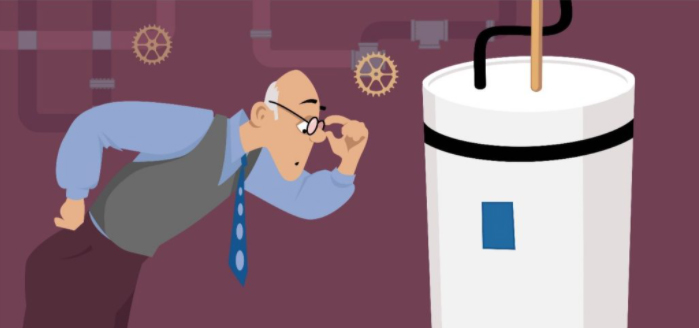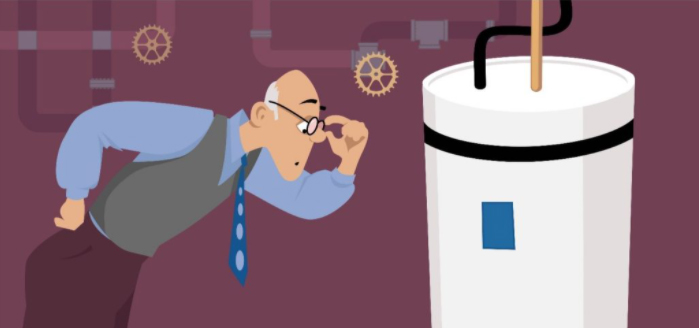How to Know If Your Water Heater Needs to be Repaired or Replaced

Having hot water on tap in our homes is a defining component of modern civilization, which has made the water heater an essential appliance. However, like all appliances, water heaters malfunction and wear out. When this happens, homeowners need to know whether their water heater can be fixed or if it must be replaced.
Today’s post shares the signs and symptoms of a failing water heater. While many of the problems water heaters develop can be repaired if caught in time, it’s often a good idea to replace your water heater, especially if it’s been in service for many years. The good news is that water heater replacement is relatively affordable, and the technology is getting better all the time, which can actually save you on energy costs. So, when you do notice problems with your water heater, you’ll want to consult with a professional residential plumber right away to help you decide your next steps.
Sediment Buildup
All tank-based water heaters, whether gas or electric, are susceptible to sediment buildup, which can cause a variety of problems. Water carries minerals that are released as water temperature rises. The harder the water, the more sediment it generates. Those minerals settle at the bottom of your water heater’s tank and sometimes form a crust on the heating element and on the inner wall of the tank.
Sediment buildup creates a barrier between the water and the heating element, causing the water heater to work harder. When this happens, homeowners will notice that it takes longer to get hot water from a running faucet or shower.
In the early stages of sedimentation buildup, a water heater can be repaired. Technicians can flush out the tank, and if necessary, replace the heating element. Homeowners with hard water should schedule an annual inspection and flushing of their heater to prevent buildup. They may also want to install a water softening system, which would protect not only the water heater from mineral buildup, but all the home’s water-using appliances, plumbing, and fixtures.
Rust
When water has a metallic smell or taste, either the water heater or water pipes are oxidizing or rusting. If only hot water—not the cold—smells or tastes metallic, the problem is in the water heater. Technicians can perform testing by taking water directly from the water heater. If the water heater is rusting, it will need to be replaced because rust will lead to leaks.
Noises
Water heaters tend to operate quietly. So, when a water heater starts to make sharp cracking, popping, or banging noises, there is a problem. These sounds can be caused by mineral buildup—specifically, pockets of air within the mineral buildup that pop as they heat. Or, these sounds can signal the cracking of the water heater’s inner lining. Such cracking means the water heater needs to be replaced.
Leaks
Water heaters typically come in sizes ranging from 40 to 100 gallons. When they leak, it isn’t just those gallons of water that hit the floor, it is also a steady stream of water from the main water supply. In the event of a leak, the first thing to do is turn off the home’s main water supply.
There should be a shutoff valve near the water meter inside the home or somewhere in the front yard. The next thing to do is figure out if the leak is from the water heater or a pipe.
If pipes leading to or from the water heater are not wet or dripping, then the water heater is the culprit. When the water heater is leaking, it can be due to a crack in the tank or a fault in the Temperature Pressure Release (TPR) valve.
TPR valves release pressure when water temperature and pressure get too high. When this valve fails, leaks can occur. If the leak is caused by a faulty TPR valve, the valve alone can be replaced. However, when the leak comes from a crack in the tank, the water heater must be replaced.
Old Age
Modern tank-based water heaters typically only last 10-12 years. When a water heater that is older than eight years isn’t working properly, it may be cheaper in the long run to replace it than to spend money repairing it.
How old is that water heater?
There is an easy way to determine how old a water heater is – look at its serial number. Each manufacturer uses a serial number code that includes the year and month that unit was made.
Before 2008, many water heater serial numbers started with a letter. That letter (A through N, excluding I) represented the month (January through December) followed by two digits that represented the year. A serial number starting with J98, for example, indicates September 1998.
After 2008, several manufacturers changed the rubric for generating serial numbers. These newer serial numbers start with the year followed by the month the unit was made.
Extending Life
Making sure the water heater is set to heat the water between 120 and 140 degrees Fahrenheit can extend the heater’s life. Lower temperatures are better than higher because they are less taxing on the unit. Plus, if there are children in the home, lower water temperatures are safer.
The best way to extend the life of the water heater is to have a certified technician give it an annual checkup. Such checkups can prevent and detect problems before they become catastrophic and costly.
NOTE:
This article was first published by Garden Spot Mechanical. Original can be read here.
Image Credit: Garden Spot Mechanical
Experienced Water Heater Plumber in St Augustine FL
If you are experiencing minor water heater issues or big hot water heater problems and not sure what to do then it is time to call plumbing professionals of . We offer free quotes on any plumbing service including water heater repair, water heater replacement and new water heater installation. Call our office and schedule a free quote appointment today. We look forward to speaking with you.





